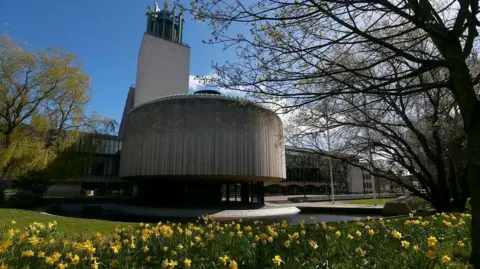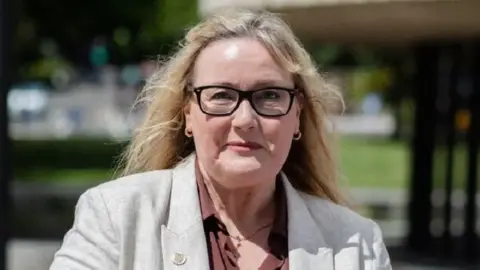Council question ban 'death knell for democracy'
 LDRS
LDRSProposals to ban opposition party councillors from asking questions at a council's cabinet meetings have been branded a "death knell for democracy".
An independent review at Labour-led Newcastle City Council has recommended reforms that include preventing opposition questions at the meetings, where the political leadership makes major decisions.
It also suggested reducing the number of scrutiny hearings and scrapping committees devoted to investigating the council's finances and climate change commitments.
A council spokesperson confirmed the review would be subject to debate at its constitutional committee in May, but any substantial changes would require the approval of the full council.
The council insisted the Centre for Governance and Scrutiny (CfGS) review presented "impartial" advice that would not necessarily be implemented.
The CfGS said cross-examination of the council's executive at cabinet meetings "can detract from the core purpose of the meetings and might easily lead to confusion for public and other observers".
'Erodes scrutiny'
Independent councillor, Marc Donnelly, told the Local Democracy Reporting Service it was "the death knell for democracy in Newcastle".
He said: "It is taking power away from the people and placing it into the hands of a very small few in the council. It will lead to less scrutiny, less debate and less discussion."
The CfGS also said the council's remaining scrutiny committees should meet only six times a year rather than 10, claiming that "fewer, more productive meetings would achieve more and have greater impact".
Colin Ferguson, Liberal Democrat opposition leader, warned the review "decimates accountability, erodes scrutiny and centralises decision making away from our communities".
 Newcastle City Council
Newcastle City CouncilWhile Labour has been in charge at the council since 2011, the authority is currently in no overall political control after former leader Nick Kemp and five others quit the party to become independents.
The Labour group, led by Karen Kilgour, said it would meet to consider the recommendations and decide how to proceed.
A spokesperson for the council said the report was commissioned as part of the Newcastle Charter "to seek impartial, expert advice on how our democratic processes could be improved".
"This ongoing review, which all members have had the opportunity to help shape, aims to help ensure that our structures and practices reflect a modern organisation, that democratic processes are open and transparent, with effective democratic decision-making processes in place to make the best use of everybody's time," they said.
